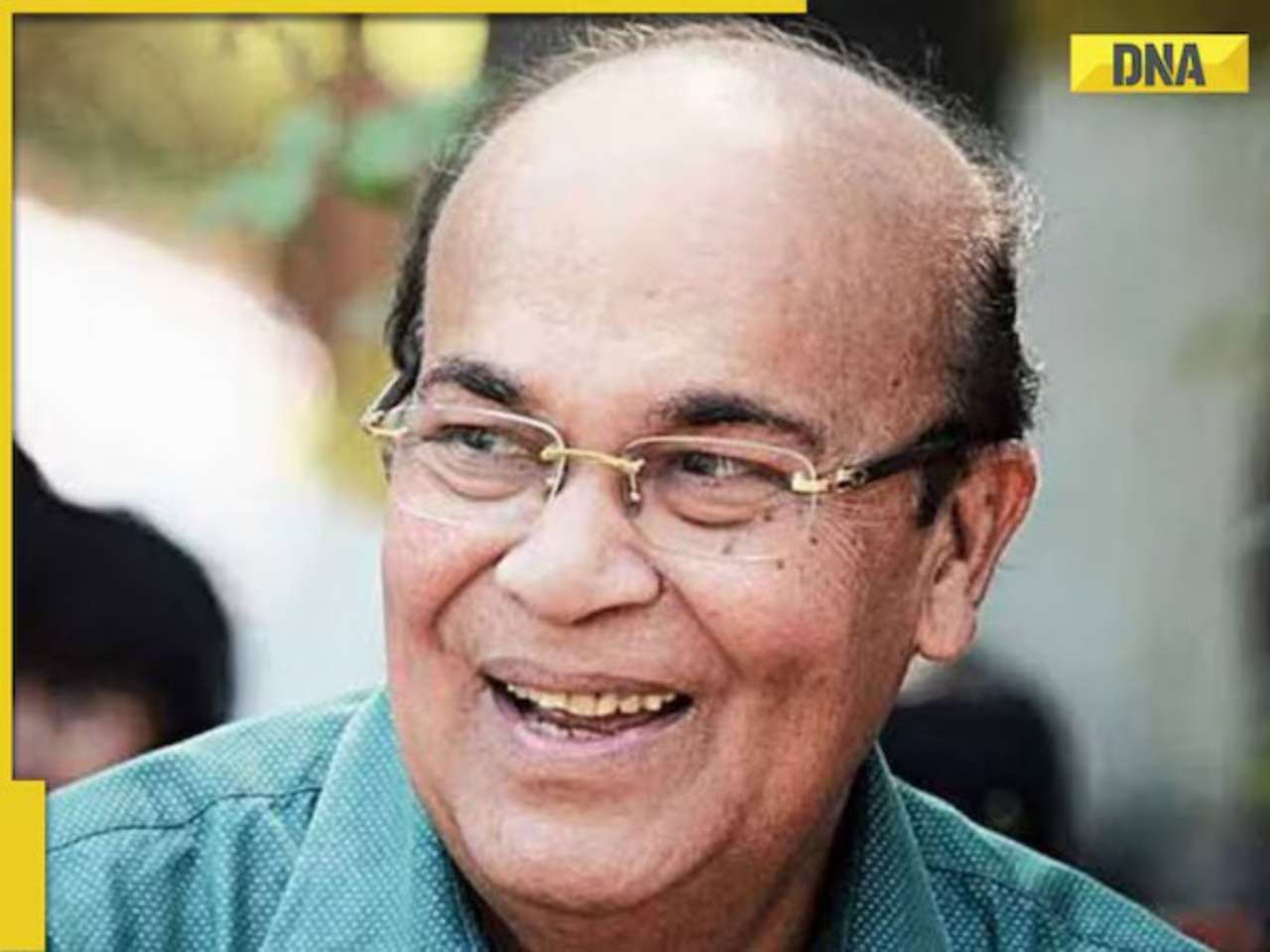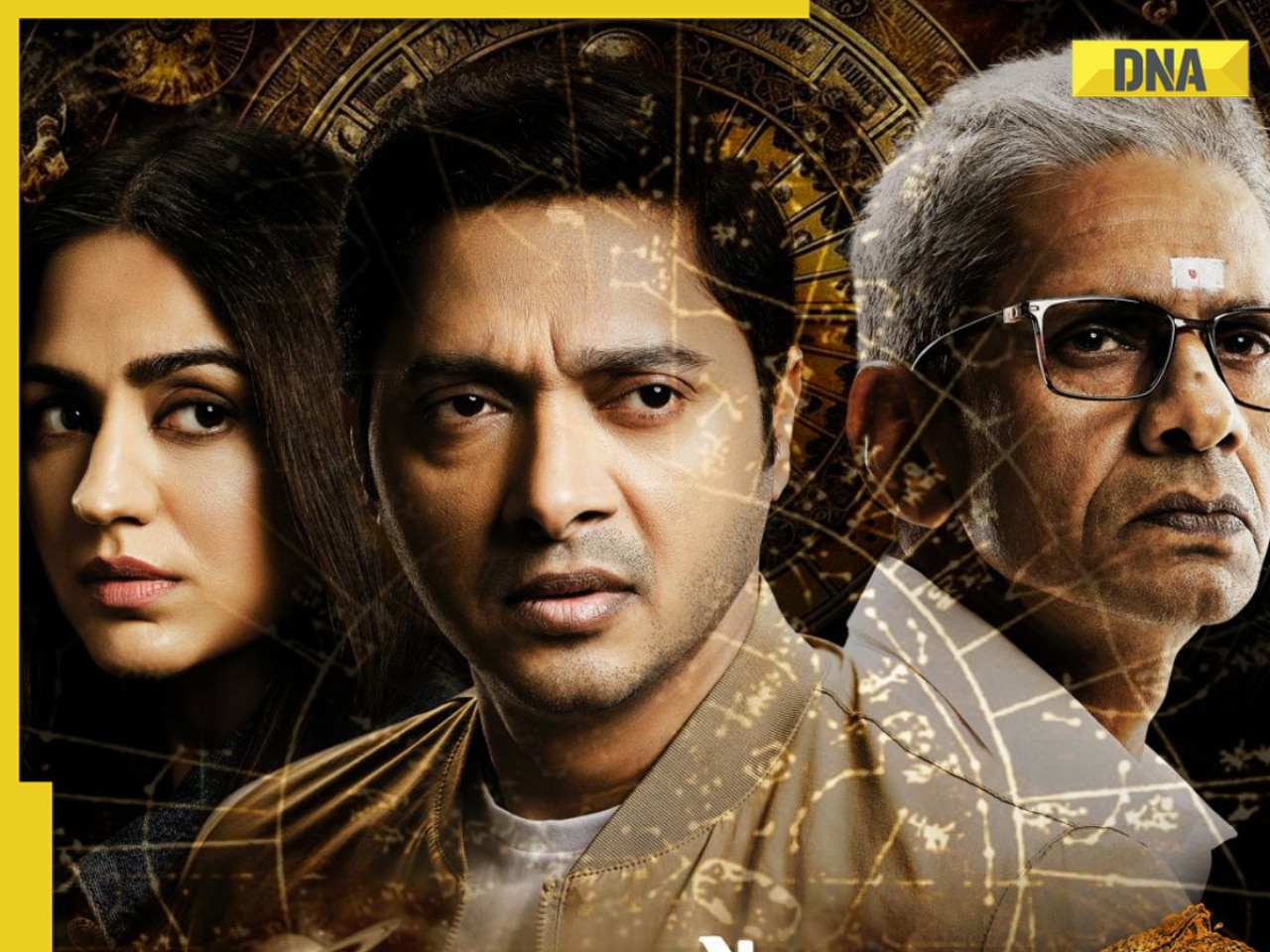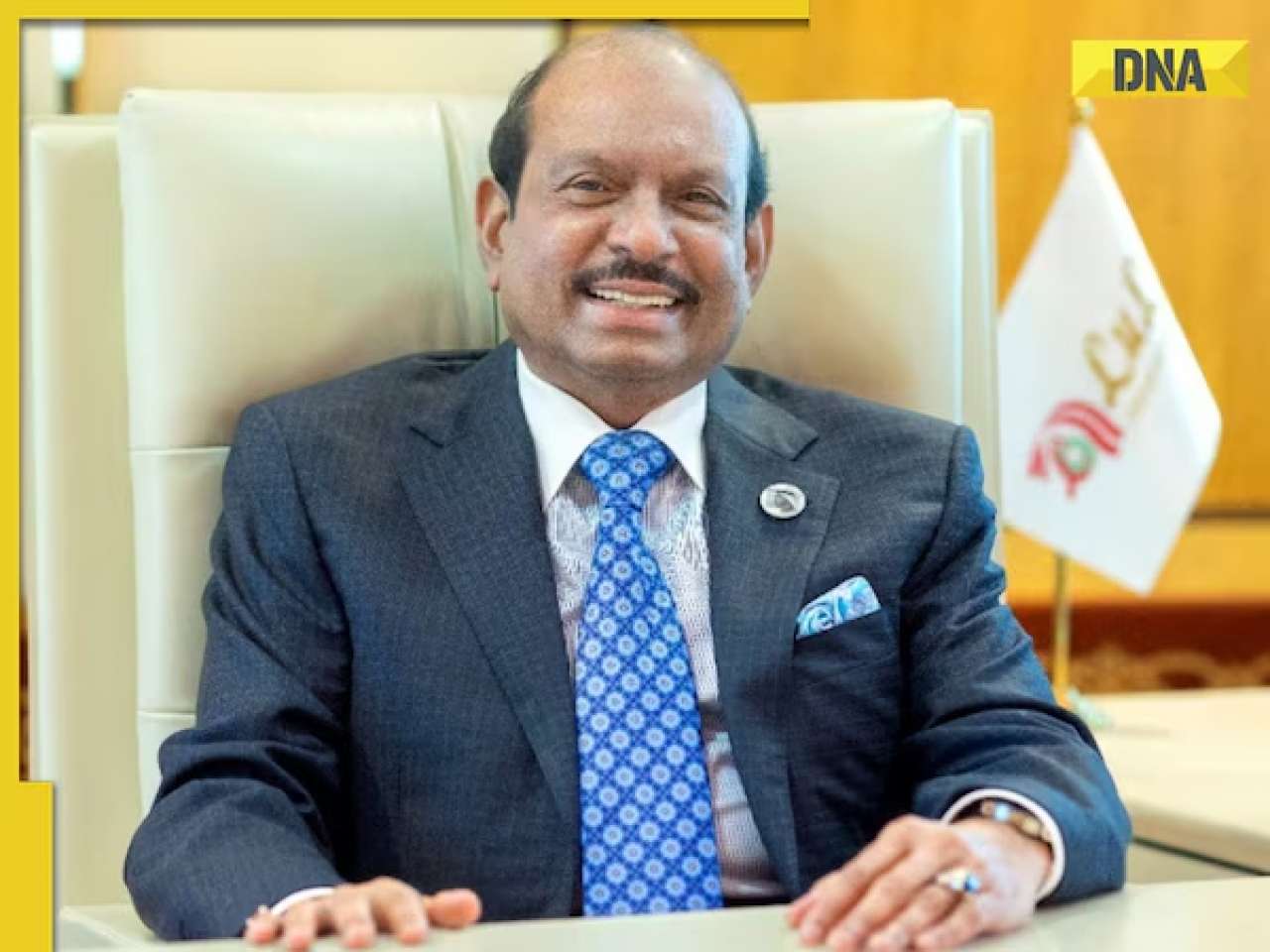Sundar Pichai, Satya Nadella, Parag Agrawal, all of India-origin, leading top international companies, prove that Indian talent has gone places.
They are a force to be reckoned with and have certainly made headlines by making it big on the global map. Wit, skill, sheer talent and the ability to stand out -- you name it and Indians have it. Indians have certainly come a long way in making their mark on the global map. Some of these have gone out to represent leading brands across the world.
It was only recently in March 2022 when Raj Subramaniam joined the list of Indian-origin CEOs heading global giants. He took charge as the CEO of FedEx. Leena Nair is another Indian-origin CEO to have made her mark when she was appointed as the first woman and youngest CEO of Chanel in December 2021.
For decades now, Indians have been playing an important role in the global landscape. From tech experts making their name heard across the silicon valley to tycoons running successful conglomerates, Indians are ruling the world -- and rightly so.
Sundar Pichai, the top boss at Alphabet, Satya Nadella, chairman at Microsoft Parag Agrawal, CEO of Twitter, all of India-origin, prove that Indian talent has gone places. The list goes on and on with the likes of Jayshree Ullal, Arvind Krishna, Shantanu Narayen, Anjali Sud, Sanjay Mehrotra among others.
The representatives of IBM, Adobe, Palo Alto Networks, VMWare, Vimeo, and Pepsico are all of Indian descent. In fact, Time Magazine has quoted that Indians are scaling corporate heights almost everywhere in the world.
While this is a testament to how far India has come and what it can do, here’s why we need to be proud of the illustrious journey of these Indian-origin CEOs and leaders. Here is what sets them apart.
Diversity
India is considered a multicultural environment. It is believed that Indian CEOs are relatively comfortable with the diversity of all sorts. Indians grow up in an atmosphere where diversity with respect to the languages spoken, faiths believed and political opinion is a given. What most multinational corporations look for is someone who can adapt to multicultural settings. Indian managers turn out to be more adaptable to new settings.
Ability to manoeuvre through hard times
Sundar Pichai’s father spent his year's salary on Pichai’s plane ticket to the US so that he could attend Stanford. It was Pichai’s first time on a plane. Pichai even grew up without much access to technology. This isn’t all. Lakshmi Mittal, an Indian steel magnate, based in the United Kingdom lived in a rented apartment in Kolkata’s Chitpur from where he reached London’s Kensington Palace Gardens. In fact, Satya Nadella, CEO of Microsoft, revived the company from some of its failed strategies.
Change, uncertainty, and disruption are just some of the adversities Indians brave on a regular basis as compared to people from most other countries, and while lack of resources might have caused a constraint in their respective journeys, they have been able to emerge stronger and thrive.
Competitiveness
Almost 140 Crore. India has a huge population. This means that Indians face a strong competition from people who come from all walks of life. This essentially prepares Indians and they end up having an edge over others in an array of streams. Whether it is getting into a good school or finding a first job, Indians have always taken these things extremely important. Being able to triumph through this intense competition prepares leaders to manage their companies in a way no one else can.
A well-known example is a competition to gain entrance into the country's pre-eminent engineering schools, the Indian Institute of Technology, or IITs, whose alumni include Arvind Krishna of IBM and Sundar Pichai of Google. In 2018, more than 1 million students took a nationwide entrance exam to get one of 12,000 seats offered by 23 IITs in the country.
Communication
A leader shall be able to communicate their ideas to be able to achieve a set objective and set the strategy in line. India has always had a multi-linguistic culture and they have been able to inculcate the same. They have a unique relationship with language. Most Indians do not see a lack of fluency as a hindrance to good communication, which is a must if you have to lead a company.
This article is in line with our special series, ‘India @75’, a series that highlights 75 stories about India as it completes 75 years of independence. The series takes a special look at historical achievements, revolutionary ideas, and path-breaking innovations in Independent India. To watch our special videos
![submenu-img]() Meet man who once suffered loss of Rs 15 crore, then built Rs 2000 crore turnover company at 60, he is…
Meet man who once suffered loss of Rs 15 crore, then built Rs 2000 crore turnover company at 60, he is…![submenu-img]() 'They did her dirty': Aishwarya Rai fans criticise stylist for her 'failed art project' outfit on Cannes red carpet
'They did her dirty': Aishwarya Rai fans criticise stylist for her 'failed art project' outfit on Cannes red carpet![submenu-img]() Woman walks on the streets of Tokyo in saree, viral video shows people’s reaction
Woman walks on the streets of Tokyo in saree, viral video shows people’s reaction![submenu-img]() Blinkit offering ‘free dhaniya’ with vegetable orders, people now asking for free…
Blinkit offering ‘free dhaniya’ with vegetable orders, people now asking for free…![submenu-img]() Kartam Bhugtam: Shreyas Talpade-starrer is a riveting dive into the unknown
Kartam Bhugtam: Shreyas Talpade-starrer is a riveting dive into the unknown![submenu-img]() Meet PhD wife of IIT graduate hired at Rs 100 crore salary package, was fired within a year, he is now…
Meet PhD wife of IIT graduate hired at Rs 100 crore salary package, was fired within a year, he is now…![submenu-img]() Meet woman not from IIT, IIM or NIT, cracked UPSC exam in first attempt with AIR...
Meet woman not from IIT, IIM or NIT, cracked UPSC exam in first attempt with AIR...![submenu-img]() Maharashtra Board Results 2024: MSBSHSE class 10th, 12th results soon, know how to check results via SMS
Maharashtra Board Results 2024: MSBSHSE class 10th, 12th results soon, know how to check results via SMS![submenu-img]() Meet Indian genius who became world’s 'youngest' surgeon at 7, worked in IIT for...
Meet Indian genius who became world’s 'youngest' surgeon at 7, worked in IIT for...![submenu-img]() Meet Kashmir boy, who is JEE topper, wants to pursue Computer Science, he aims to clear...
Meet Kashmir boy, who is JEE topper, wants to pursue Computer Science, he aims to clear...![submenu-img]() DNA Verified: Is CAA an anti-Muslim law? Centre terms news report as 'misleading'
DNA Verified: Is CAA an anti-Muslim law? Centre terms news report as 'misleading'![submenu-img]() DNA Verified: Lok Sabha Elections 2024 to be held on April 19? Know truth behind viral message
DNA Verified: Lok Sabha Elections 2024 to be held on April 19? Know truth behind viral message![submenu-img]() DNA Verified: Modi govt giving students free laptops under 'One Student One Laptop' scheme? Know truth here
DNA Verified: Modi govt giving students free laptops under 'One Student One Laptop' scheme? Know truth here![submenu-img]() DNA Verified: Shah Rukh Khan denies reports of his role in release of India's naval officers from Qatar
DNA Verified: Shah Rukh Khan denies reports of his role in release of India's naval officers from Qatar![submenu-img]() DNA Verified: Is govt providing Rs 1.6 lakh benefit to girls under PM Ladli Laxmi Yojana? Know truth
DNA Verified: Is govt providing Rs 1.6 lakh benefit to girls under PM Ladli Laxmi Yojana? Know truth![submenu-img]() Aishwarya Rai Bachchan turns heads in intricate black gown at Cannes, walks the red carpet with injured arm in cast
Aishwarya Rai Bachchan turns heads in intricate black gown at Cannes, walks the red carpet with injured arm in cast![submenu-img]() Laapataa Ladies' Poonam aka Rachna Gupta looks unrecognisable in viral photos, amazes with jaw-dropping transformation
Laapataa Ladies' Poonam aka Rachna Gupta looks unrecognisable in viral photos, amazes with jaw-dropping transformation![submenu-img]() In pics: Taarak Mehta Ka Ooltah Chashmah actress Deepti Sadhwani dazzles in orange at Cannes debut, sets new record
In pics: Taarak Mehta Ka Ooltah Chashmah actress Deepti Sadhwani dazzles in orange at Cannes debut, sets new record![submenu-img]() Ananya Panday stuns in unseen bikini pictures in first post amid breakup reports, fans call it 'Aditya Roy Kapur's loss'
Ananya Panday stuns in unseen bikini pictures in first post amid breakup reports, fans call it 'Aditya Roy Kapur's loss'![submenu-img]() Remember Harsh Lunia? Just Mohabbat child star, here's how former actor looks now, his wife is Bollywood's popular...
Remember Harsh Lunia? Just Mohabbat child star, here's how former actor looks now, his wife is Bollywood's popular...![submenu-img]() Haryana Political Crisis: Will 3 independent MLAs support withdrawal impact the present Nayab Saini led-BJP government?
Haryana Political Crisis: Will 3 independent MLAs support withdrawal impact the present Nayab Saini led-BJP government?![submenu-img]() DNA Explainer: Why Harvey Weinstein's rape conviction was overturned, will beleaguered Hollywood mogul get out of jail?
DNA Explainer: Why Harvey Weinstein's rape conviction was overturned, will beleaguered Hollywood mogul get out of jail?![submenu-img]() What is inheritance tax?
What is inheritance tax?![submenu-img]() DNA Explainer: What is cloud seeding which is blamed for wreaking havoc in Dubai?
DNA Explainer: What is cloud seeding which is blamed for wreaking havoc in Dubai?![submenu-img]() DNA Explainer: What is Israel's Arrow-3 defence system used to intercept Iran's missile attack?
DNA Explainer: What is Israel's Arrow-3 defence system used to intercept Iran's missile attack?![submenu-img]() 'They did her dirty': Aishwarya Rai fans criticise stylist for her 'failed art project' outfit on Cannes red carpet
'They did her dirty': Aishwarya Rai fans criticise stylist for her 'failed art project' outfit on Cannes red carpet![submenu-img]() Kartam Bhugtam: Shreyas Talpade-starrer is a riveting dive into the unknown
Kartam Bhugtam: Shreyas Talpade-starrer is a riveting dive into the unknown![submenu-img]() Richa Chadha says Heeramandi co-star Sharmin Segal being trolled for her performance is 'audience’s right'
Richa Chadha says Heeramandi co-star Sharmin Segal being trolled for her performance is 'audience’s right'![submenu-img]() Meet only Indian actress whose film is competing for top prize at Cannes; not Aishwarya, Deepika, Kiara, Priyanka, Alia
Meet only Indian actress whose film is competing for top prize at Cannes; not Aishwarya, Deepika, Kiara, Priyanka, Alia![submenu-img]() How two heroines beat Rajinikanth, Vijay, Dhanush to give Tamil cinema's biggest hit of 2024; low-budget film earned...
How two heroines beat Rajinikanth, Vijay, Dhanush to give Tamil cinema's biggest hit of 2024; low-budget film earned...![submenu-img]() Woman walks on the streets of Tokyo in saree, viral video shows people’s reaction
Woman walks on the streets of Tokyo in saree, viral video shows people’s reaction![submenu-img]() Why Australians walk barefoot in public: Here’s the reason
Why Australians walk barefoot in public: Here’s the reason![submenu-img]() People in this country compete to see who’s best at doing nothing, here's why
People in this country compete to see who’s best at doing nothing, here's why![submenu-img]() Viral video: Influencer dressed as 'Manjulika' dances on crowded road, internet reacts
Viral video: Influencer dressed as 'Manjulika' dances on crowded road, internet reacts![submenu-img]() Viral video: Baby elephant receives 'Z-category security' during family nap in Tamil Nadu reserve
Viral video: Baby elephant receives 'Z-category security' during family nap in Tamil Nadu reserve






































)


















)
)
)
)
)
)